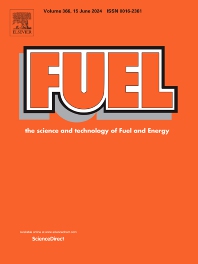Journals in Energy and power
Journals in Energy and power
Elsevier’s Energy and Power Collection offers the latest innovations in the energy transition with a focus on content that supports and advances the reduction of CO2 emissions. The collection includes content on solar, wind, geothermal, nuclear, biofuels and bioenergy, hydrogen and fuel cells, and addresses topics such as energy storage, efficiency, management, economics, and policy, among others.
- ISSN: 2589-7780
EnergyChem

- ISSN: 0016-2361
Fuel

- ISSN: 0378-3820
Fuel Processing Technology

- ISSN: 0140-6701
Fuel and Energy Abstracts

- ISSN: 0920-3796
Fusion Engineering and Design

- ISSN: 1875-5100
Gas Science and Engineering

- ISSN: 0920-4105
Geoenergy Science and Engineering

- ISSN: 0375-6505
Geothermics

- ISSN: 0167-9260
Integration

- ISSN: 0142-0615
International Journal of Electrical Power & Energy Systems
